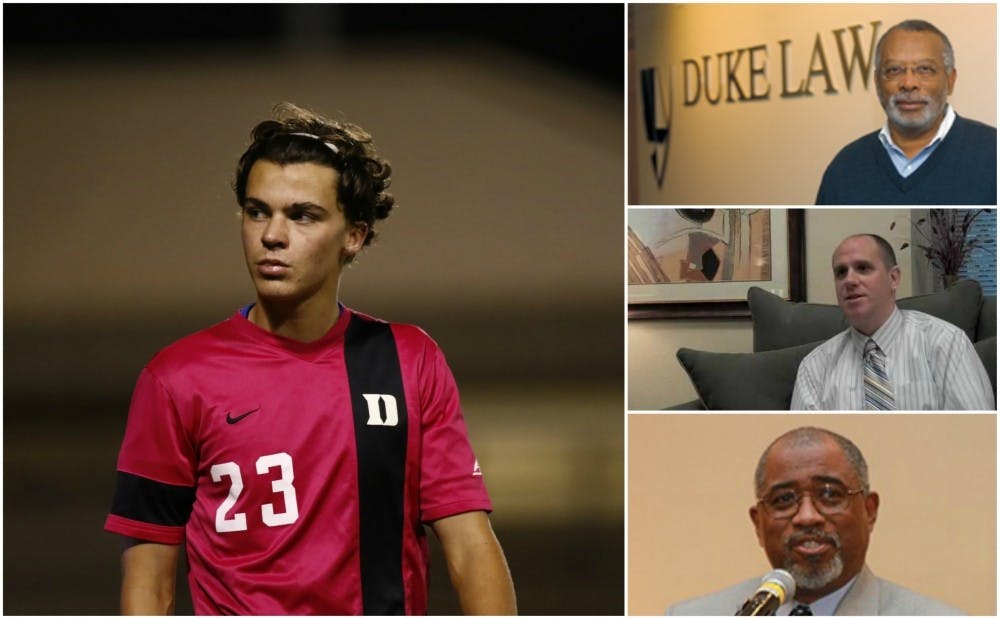Senior Resident Superior Court Judge Orlando Hudson permanently barred Duke from suspending junior Ciaran McKenna over sexual misconduct claims, The Herald Sun reported Tuesday.
McKenna sued Duke last year, alleging that the University mishandled rape allegations against him in the student conduct process.
Hudson had previously issued a temporary injunction, but now converted it into a permanent injunction against the University. Emilia Beskind, one of McKenna’s lawyers, told The Chronicle that the permanent injunction was based off only one of the several legal claims McKenna filed against the University.
However, she said Duke could not suspend McKenna even if the other claims went the other way because of the permanent injunction.
"The summary judgement motion was about the contract claim, that Duke has a contract with their students and in particular with this student, and that they violated that contract," she said. "The permanent injunction is based on the court's finding on that claim."
Beskind said in the Herald Sun that McKenna would pursue damages due to the effect being “falsely labeled as a rapist” could have on his life. However, she also noted that Duke has the option of appealing the injunction.
Michael Schoenfeld, vice president for public affairs and government relations, declined to comment on pending litigation.
In July 2016, a three-person Office of Student Conduct panel found McKenna unanimously responsible for violating sexual misconduct policy because the alleged victim had not verbally consented. However, the panel was not unanimously convinced that the alleged victim said “no” to the sexual encounter—though she claimed that she had.
McKenna appealed the decision, and the appeals panel found that there was procedural error in the first panel. The issue was then returned to the Office of Student Conduct.
Convened in November 2016, a second panel found that the alleged victim had not given consent, and that she had also explicitly denied it. At that point, McKenna appealed to a second appeals panel, which decided not to overturn the decision. McKenna was then suspended in January 2017 and sued for breach-of-contract thereafter.
McKenna claimed Duke breached its own policy by allowing a second hearing panel to hear the case at all, when instead the appeals panel should have “resolved the case” as specified by university procedure at the time.
Check back for updates on this developing story. This article was updated at 10:40 Tuesday morning to include Beskind's comments.
Get The Chronicle straight to your inbox
Signup for our weekly newsletter. Cancel at any time.

